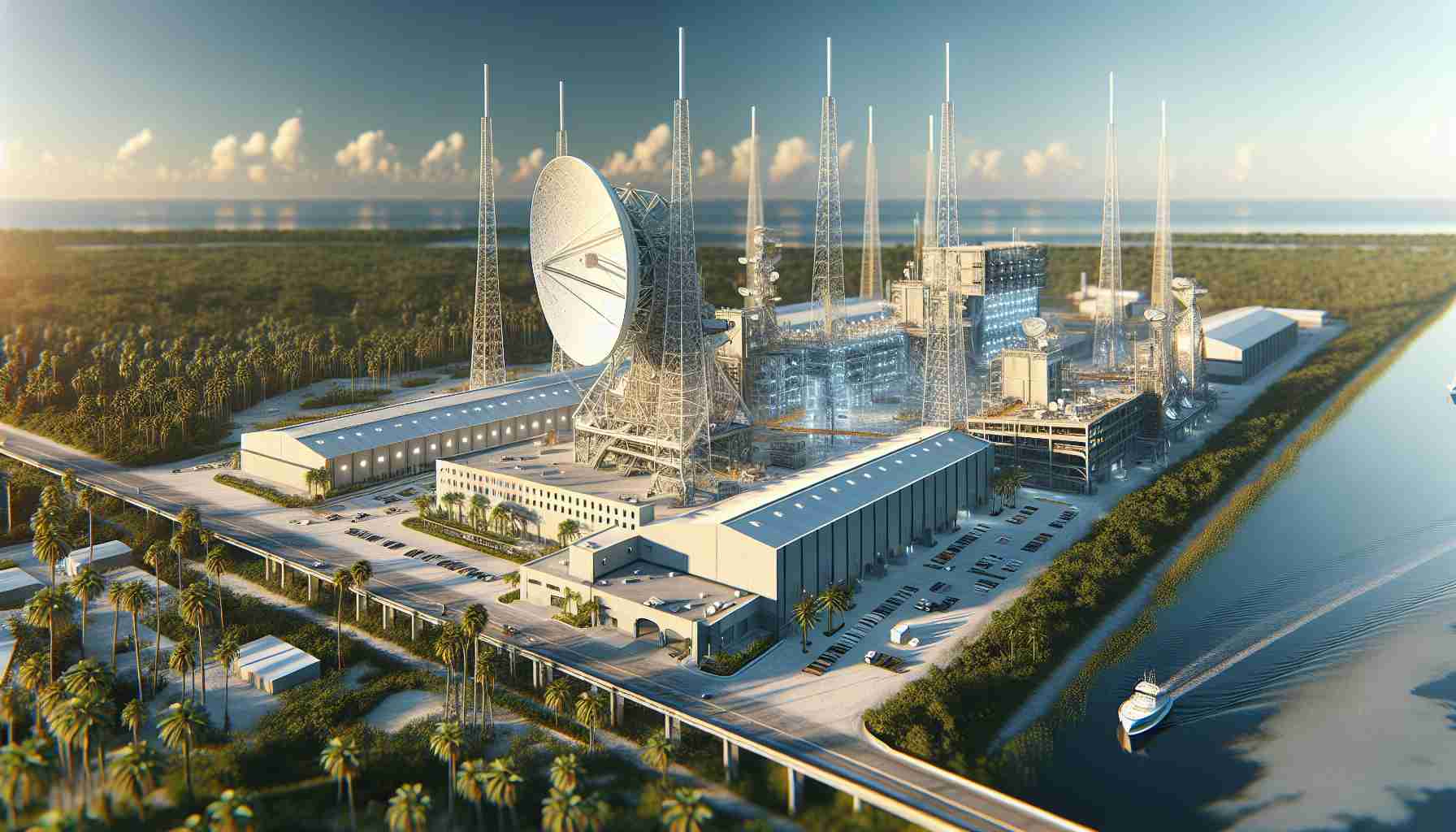
A significant expansion initiative is underway at the Airbus U.S. Space & Defense facility located on Merritt Island, with completion expected by mid-2025. This expansion aims to adapt production capabilities to construct a new military satellite constellation, featuring optically interconnected satellites positioned in low-Earth orbit.
This innovative military framework is designed to offer comprehensive capabilities including communications, remote sensing, and missile tracking. The leadership at Airbus emphasizes the importance of aligning satellite design with modern technological advances to mitigate vulnerabilities. By leveraging innovative smaller satellites, the military is shifting its focus from traditional large, stationary satellites that present attractive targets, to a denser network of satellites for improved coverage.
Breaking ground in early 2023, the expansion is projected to cost approximately $85 million. The facility, recognized as the world’s first high-volume satellite production site, currently employs around 200 workers, a number expected to rise as operations ramp up.
Airbus reports that the factory is in the process of constructing larger Arrow 450 satellites, which are integral to various military missions. With a history of producing over 700 Arrow 150 satellites for commercial purposes, this upgrade will further enhance their capabilities to support U.S. national security.
As the global landscape of satellite technology evolves, Airbus continues to integrate commercial advancements into defense applications, ensuring both innovation and security are prioritized in their projects.
The Expansion Project Set to Enhance Satellite Production in Florida: New Developments
A major expansion project at the Airbus U.S. Space & Defense facility on Merritt Island, Florida is set to revolutionize satellite production capabilities, with operations slated to be completed by mid-2025. This ambitious endeavor will enable the construction of cutting-edge military satellite constellations, expanding the strategic options available for national defense and security.
Key Questions Surrounding the Expansion
1. What specific technological advancements will be incorporated into these new satellites?
The new military satellite constellation will utilize advanced sensors and artificial intelligence to improve data processing and decision-making. Additionally, these satellites will feature enhanced optical interconnectivity to facilitate rapid communication.
2. How will this expansion impact local employment?
While the facility currently employs around 200 workers, the expansion is expected to create many new jobs in various capacities, ranging from engineering to manufacturing, ultimately increasing local employment opportunities.
3. What are the expected environmental impacts of the expansion?
Measures will be taken to comply with environmental regulations, and Airbus has committed to sustainable practices throughout the construction and operational phases. However, local environmental groups may scrutinize potential impacts on natural habitats.
Challenges and Controversies
Despite its promising outlook, the expansion project faces several challenges:
– Funding and Budget Concerns: The estimated cost of $85 million may encounter budget overruns or delays due to unforeseen circumstances in construction and procurement.
– Competition in the Aerospace Sector: As various companies seek to capitalize on the growing demand for satellite technology, competition could escalate, posing potential challenges in talent acquisition and resource allocation.
– Geopolitical Tensions: The evolving landscape of global politics may impact the strategic positioning of these satellites, heightening concerns about militarization in space.
Advantages and Disadvantages of the Expansion
Advantages:
– Enhanced production facilities will allow for more efficient manufacturing of advanced satellites.
– Increased capabilities in communications, reconnaissance, and defense through a modernized satellite constellation.
– Job creation within the local community, fostering economic growth.
Disadvantages:
– Potential environmental impacts and scrutiny from regulatory bodies.
– Risks associated with technological advancements that may outpace defense strategies.
– Increased scrutiny from adversaries who might view the expansion as a threat.
Overall, the expansion of satellite production capabilities at Airbus presents a significant step forward for the U.S. military’s strategic operations. As the company aligns its innovations with the needs of national security, the resulting technological advancements will play a crucial role in the country’s defense infrastructure.
For more information on advancements and projects in the aerospace and defense sectors, visit Airbus.



